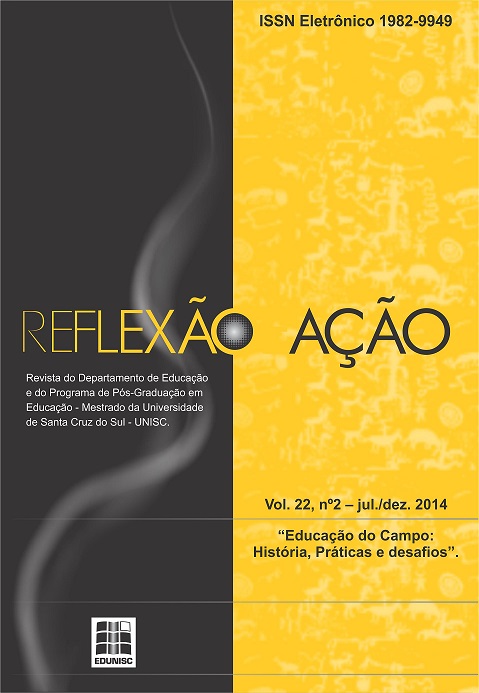EPISTEMIC-POLITICAL DIMENSIONS OF RURAL EDUCATION FROM A LATIN AMERICAN PERSPECTIVE
DOI:
https://doi.org/10.17058/rea.v22i2.5105Keywords:
Education for the Countryside, Rural Education, Episteme, Social Movements, Political Projest, Latin AmericaAbstract
We observe multiple experiences of resistance in Latin America in the new millennium, especially in the political action of indigenous, peasant afrodescendent social movements, as they try to consolidate political projects of an emancipatory nature. In the field of education, we can see these projects emerge as a new and fundamental category, that uses the language of otherness to resignify political, social and cultural life in the correlation of forces between civil society and the State. This work aims to deepen this reflection, based on the experience of rural education, or "Education for the Countryside" (Educación del Campo), as an historical and political project of peasant social movements in Brazil. We focus on the epistemic-political dimensions of Education for the Countryside, and its articulation with an historical-critical reading of reality of rural Brazil. It is thus central to the genesis of an 'other' episteme, and is part of a new political culture among rural subjects. In particular, we highlight the key turning points of rural education in the context of Latin American political struggle.Downloads
Downloads
Published
How to Cite
Issue
Section
License
The submission of originals to this journal implies on the transference, by the author(s), of the printed and digital publishing rights. The author´s rights to the published articles are the author´s, the journal has the rights over the first publication. The author(s) can only use the same results in other publications, indicating clearly that this journal was the original publisher. Since we are an open access journal, the free use of articles is permitted for educational and scientific applications, as long as they inform the source according with the CC-BY license from Creative Commons.


